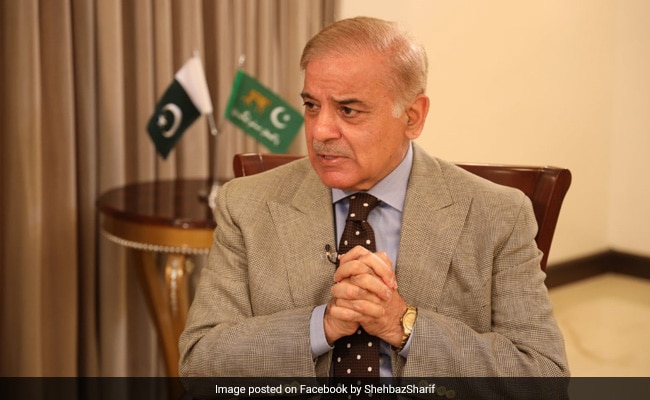
Pakistan is going through its worst economic crisis
Pakistan won a vital reprieve from a possible debt default thanks to a draft agreement with the International Monetary Fund, but political stability will be key for the South Asian economy in the coming months.
The political situation has been volatile in recent weeks, adding to more than a year of upheaval since the ouster of former prime minister Imran Khan in April 2022. Violence erupted across the country in May after of the arrest of Mr. Khan, who has faced more than 100 cases ranging from corruption to murder in various courts.
“It all depends on whether political stability returns,” Uzair Aqeel, a partner at London-based Nairang Capital, said after Pakistan secured a project agreement with the IMF for a 3,000 loan program millions of dollars.
As recently as last August, Islamabad had obtained approval from IMF staff for a $1.1 billion loan, only to halt the bailout program for failing to meet some conditions. Prime Minister Shehbaz Sharif was able to seal a new deal after multiple hour-long phone calls and several meetings with IMF Managing Director Kristalina Georgieva.
“Under duress, the government has shown that reforms can be initiated – now the question is whether they will stay on track and continue to work systematically,” Aqeel said.
The nine-month deal, called a standby reached on Thursday, will need the approval of the IMF’s executive board, with a vote expected in mid-July.
With about $23 billion of external debt obligations maturing in the fiscal year that begins in July, more than six times the country’s foreign exchange reserves, the new IMF support may ease concerns about Pakistan’s ability to to continue making payments.
Pakistan is going through its worst economic crisis with record interest rates and inflation making it difficult for people to buy fuel and put food on the table.
The government proposed a budget plan in June to reduce the fiscal deficit in part through tax increases. But that will test the administration’s already frayed popularity ahead of national elections expected no later than October.
“I don’t think the government is in a position right now to do serious reforms,” said Ruchir Desai, co-fund manager of the AFC Asia Frontier Fund. Indeed, this may be why Pakistan has opted for a reservation arrangement, he said. Ultimately, a long-term agreement with the IMF will be needed, he said.
For now, the deal will be “a convenience for investors,” added Ruchir Desai. With Pakistani shares so cheaply valued – the KSE-100 index is trading at just four times earnings, by his reckoning – “I think the market will recover.”
But for a sustained gain beyond the next two months, the next election will have to go smoothly, Desai warned.
Markets were closed in Pakistan on Friday and are expected to reopen on Monday. Pakistan’s dollar bonds maturing in 2024 rose on Friday.
The IMF deal could help encourage other creditors to engage with Pakistan, increasing the country’s breathing space, according to Mattias Martinsson, chief investment officer at Stockholm-based frontier market investors Tundra Fonder AB.
Pakistan expects Saudi Arabia and the United Arab Emirates to provide $3 billion in new loans and more in investments. It is also trying to materialize about $10 billion pledged in pledges at a donor conference in Geneva after last year’s devastating floods.
“From our perspective, the market has already factored in a default, so some positive reaction is likely,” Martinsson said. “Our main apprehension, however, continues to revolve around the uncertain political situation,” he said later this year.
[ad_2]
Source link





